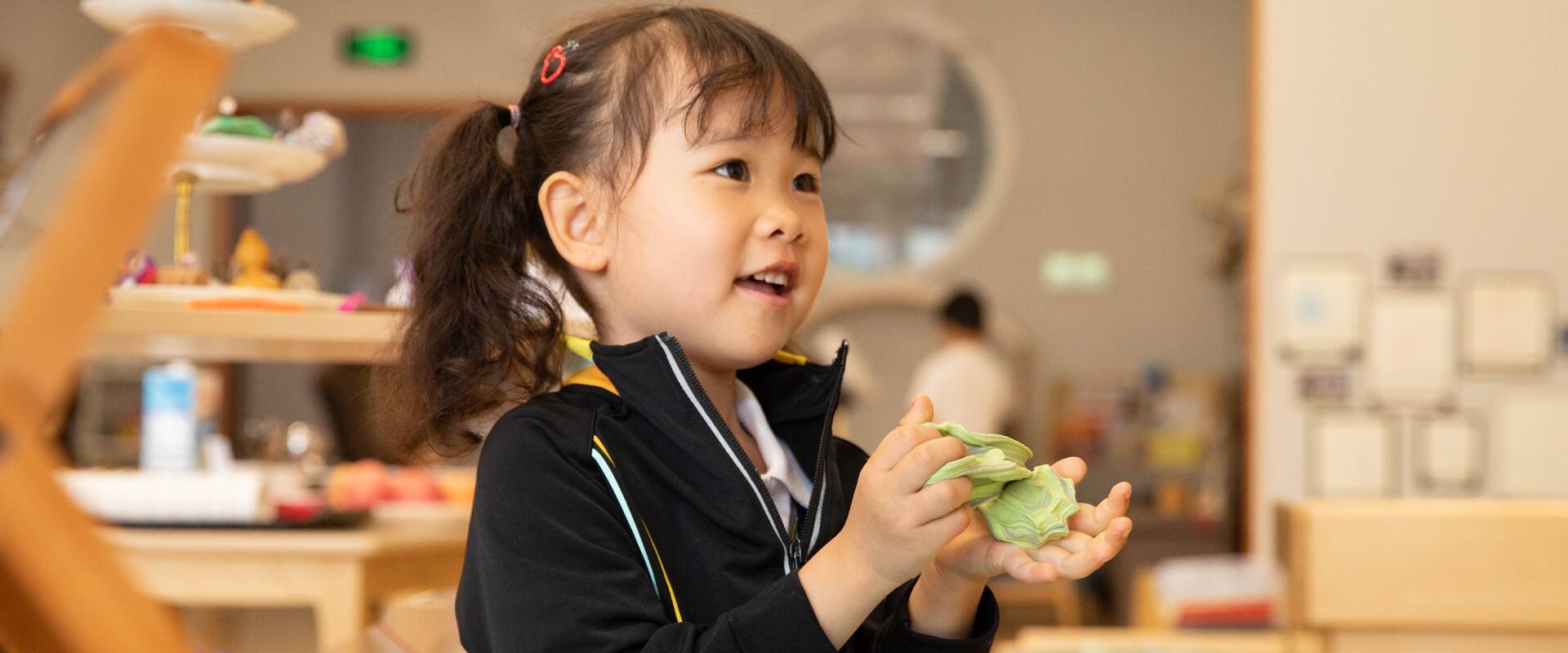
When children pretend, they’re using their imaginations to move beyond the bounds of reality. A stick can be a magic wand. A sock can be a puppet. A small child can be a superhero.
Fred Rogers,
American writer
We introduced the concept of “Drama in Education” at Huili Nursery Hangzhou in 2021 to achieve Huili’s holistic education, and this year, we incorporated it as part of our teacher training. With this concept, education is no longer merely education itself, but something that helps children to find the just suitable balance with the world, to recognise the needs of others and themselves, and to find the beauty of the world with increasing empathy. Read on to find out more about how Ms Yang, Deputy Head of Nursery, introduces how drama in education is implemented at Huili Nursery Hangzhou.
Drama in Education values diverse perspectives
Drama in Education unleashes imagination
Our EY4 children experienced Manxi's loneliness as they explore the world ‘back and beyond the sofa’. They were invited to become the idea fairies in the mind of Gaga, to paint different worlds for the couch. "Inviting children to create" in a drama is a good way to help children release their emotions.
Drama in Education provokes thinking on human and community
Look, EY2 children embarked on their journey on the "biggest boat" to the "Adventure Island" with high spirit. They were fully prepared to enjoy this fun-packed journey. Using drama in a way that makes the journey adventurous yet secure, allowing them to explore the value of themselves and the connection between individual and the community. Our research demonstrates that drama brings different groups to collaborate and helps them make progress in the areas of development in early years.
Drama in Education involves parents
Our EY3 children created their drama story Nobody likes Goblin. The witch in the story made an offer that one has to give her a treasure in exchange for the magic potion. However, does treasure equate to precious stones or shiny gold? When the teacher asked, “What do you deem as valuable and precious?” At this point, the children answered with great creativity: treasures could be delicious food, a doll bear, a rabbit hat, etc. But no matter what the stakes were, they would never give up their parents. Then, how could they get the magic potion? They suddenly thought of a good idea: “how about inviting our mums as our most precious treasure to make the witch’s favourite cake?” This activity allowed the children to see the love and care their parents give them. In addition, the baking process improved children’s understanding of the world, their literacy and maths skills, as well as their personal, social and emotional development skills. They also composed their own songs about goblins and witches, continuing to explore the field of expressive art.